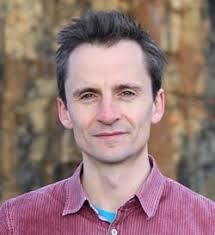-
Courses

Courses
Choosing a course is one of the most important decisions you'll ever make! View our courses and see what our students and lecturers have to say about the courses you are interested in at the links below.
-
University Life

University Life
Each year more than 4,000 choose University of Galway as their University of choice. Find out what life at University of Galway is all about here.
-
About University of Galway

About University of Galway
Since 1845, University of Galway has been sharing the highest quality teaching and research with Ireland and the world. Find out what makes our University so special – from our distinguished history to the latest news and campus developments.
-
Colleges & Schools

Colleges & Schools
University of Galway has earned international recognition as a research-led university with a commitment to top quality teaching across a range of key areas of expertise.
-
Research & Innovation

Research & Innovation
University of Galway’s vibrant research community take on some of the most pressing challenges of our times.
-
Business & Industry

Guiding Breakthrough Research at University of Galway
We explore and facilitate commercial opportunities for the research community at University of Galway, as well as facilitating industry partnership.
-
Alumni & Friends

Alumni & Friends
There are 128,000 University of Galway alumni worldwide. Stay connected to your alumni community! Join our social networks and update your details online.
-
Community Engagement

Community Engagement
At University of Galway, we believe that the best learning takes place when you apply what you learn in a real world context. That's why many of our courses include work placements or community projects.
Biomedical Genomics (MSc)
Course Overview
The aim of this programme is to train graduates with backgrounds in the molecular life sciences in genomics relevant to medical applications. With continuing advances in the technologies that are used to sequence DNA, medical applications of genomics are becoming increasingly important. It is now possible to diagnose rare genetic diseases from genomic sequences, while sequencing of tumours has become an important means of refining therapeutic choices in cancer treatment. Graduates of this programme will gain core skills in genomics analysis and practical experience of applying these skills to biological samples and data.
Scholarships available
Find out about our Postgraduate Scholarships here.
--
You may also be interested in one of our other Mathematics, Bioinformatics and Computational Genomics postgraduate programmes.
Applications and Selections
Applications are made online via the University of Galway Postgraduate Applications System. Selection is based on the candidate's academic record at an undergraduate level and their aptitude for the course.
Who Teaches this Course
Biochemistry
Room 106
Arts/Science Building
South Campus
View Profile
Requirements and Assessment
Students are formally assessed through a variety of both continuous assessment and end-of-semester written examinations. Continuous assessment will include written assignments, programming exercises, genomic analyses, group and individual presentations, and case studies, while assessment of the Research Project includes examination of a written thesis, as well as oral presentations, and participation in a research seminar series.
Key Facts
Entry Requirements
Applicants must have achieved a First or strong Second Class Honours degree in a cognate discipline. Qualifying degrees include, but are not limited to: biochemistry, genetics, biomedical science, and biotechnology.
Additional Requirements
Recognition of Prior Learning (RPL)
Duration
1 year, full-time
Next start date
September 2024
A Level Grades ()
Average intake
15
QQI/FET FETAC Entry Routes
Closing Date
Please refer to the review/closing date web-page.
NFQ level
Mode of study
ECTS weighting
90
Award
CAO
Course code
MSC-BMG
Course Outline
This is a 12-month, 90-credit course consisting of 60 credits of taught modules and a 30 credit research project. Taught modules will be completed by the end of Semester 2 and will consist of 45 credits of core and 15 credits of optional modules. Both the core modules and the set of optional modules available to the student depend on whether the student has a background in the molecular life sciences or the quantitative or computational sciences. From the end of Semester 2, the student will focus on a full-time basis on an individual research project.
Optional modules (10 credits from the options below)
- Applied statistics (5 ECTS)
- Networks (5 ECTS)
- Data Visualisation (5 ECTS)
- Advanced and applied immunology (5 ECTS)
- Molecular and cellular biology of cancer (10 ECTS)
Curriculum Information
Curriculum information relates to the current academic year (in most cases).Course and module offerings and details may be subject to change.
Glossary of Terms
- Credits
- You must earn a defined number of credits (aka ECTS) to complete each year of your course. You do this by taking all of its required modules as well as the correct number of optional modules to obtain that year's total number of credits.
- Module
- An examinable portion of a subject or course, for which you attend lectures and/or tutorials and carry out assignments. E.g. Algebra and Calculus could be modules within the subject Mathematics. Each module has a unique module code eg. MA140.
- Subject
- Some courses allow you to choose subjects, where related modules are grouped together. Subjects have their own required number of credits, so you must take all that subject's required modules and may also need to obtain the remainder of the subject's total credits by choosing from its available optional modules.
- Optional
- A module you may choose to study.
- Required
- A module that you must study if you choose this course (or subject).
- Required Core Subject
- A subject you must study because it's integral to that course.
- Semester
- Most courses have 2 semesters (aka terms) per year, so a three-year course will have six semesters in total. For clarity, this page will refer to the first semester of year 2 as 'Semester 3'.
Year 1 (90 Credits)
OptionalMA5114: Programming for Biology - 5 Credits - Semester 1OptionalMA5108: Statistical Computing with R - 5 Credits - Semester 1
OptionalMA5116: Introductory Probability for Genomics - 5 Credits - Semester 1
OptionalBI5107: Introduction to Molecular and Cellular Biology - 5 Credits - Semester 1
OptionalST417: Introduction to Bayesian Modelling - 5 Credits - Semester 1
OptionalST2003: Random Variables - 5 Credits - Semester 1
OptionalHDS5105: Statistical Computing for Biomedical Data - 5 Credits - Semester 1
OptionalST2001: Statistics for Data Science 1 - 5 Credits - Semester 1
OptionalHDS5104: Statistics for Health Data Science - 5 Credits - Semester 1
OptionalCS103: Computer Science - 5 Credits - Semester 1
OptionalMA4103: Machine learning and deep learning for genomics - 5 Credits - Semester 1
RequiredMA5111: Genomics Data Analysis I - 5 Credits - Semester 1
RequiredMA5106: Medical Genomics 1 - 5 Credits - Semester 1
RequiredBI5102: Genomics Techniques 1 - 5 Credits - Semester 1
RequiredMA5105: Genomics Project - 30 Credits - Semester 1
OptionalMA461: Probabilistic Models for Molecular Biology - 5 Credits - Semester 2
OptionalST412: Stochastic Processes - 5 Credits - Semester 2
OptionalCT5100: Data Visualisation - 5 Credits - Semester 2
OptionalMA216: Mathematical Molecular Biology II - 5 Credits - Semester 2
OptionalMA324: Introduction to Bioinformatics (Honours) - 5 Credits - Semester 2
OptionalCS4423: Networks - 5 Credits - Semester 2
OptionalREM508: Graduate Course in Basic and Advanced Immunology - 5 Credits - Semester 2
OptionalMA5118: Advanced Chemoinformatics - 5 Credits - Semester 2
OptionalST2002: Statistics for Data Science 2 - 5 Credits - Semester 2
OptionalST2004: Statistical Inference - 5 Credits - Semester 2
OptionalHDS5101: Predictive Modelling and Statistical Learning - 5 Credits - Semester 2
OptionalHDS5103: Statistical Modelling for Health Data Science - 5 Credits - Semester 2
OptionalMA5121: Genomics at Scale - 5 Credits - Semester 2
OptionalMA5122: Pathogen Genomic Epidemiology and Surveillance - 5 Credits - Semester 2
RequiredMA5117: Genomics Research Methods - 5 Credits - Semester 2
RequiredMA5107: Medical Genomics II - 5 Credits - Semester 2
RequiredMA5112: Genomics Data Analysis II - 5 Credits - Semester 2
Why Choose This Course?
Career Opportunities
The MSc in Biomedical Genomics will provide the mix of skills required to engage in genomics analysis and research in a variety of settings. As advances in precision medicine take hold, it is anticipated that the need for genomics analysts in health care, the pharmaceutical industry and in academic research will continue to increase, generating opportunities to seek employment in each of these areas.

Who’s Suited to This Course
Learning Outcomes
Transferable Skills Employers Value
Work Placement
Study Abroad
Related Student Organisations
Course Fees
Fees: EU
Fees: Tuition
Fees: Student levy
Fees: Non EU
Postgraduate students in receipt of a SUSI grant—please note an F4 grant is where SUSI will pay €4,000 towards your tuition (2024/25). You will be liable for the remainder of the total fee. A P1 grant is where SUSI will pay tuition up to a maximum of €6,270. SUSI will not cover the student levy of €140.
Postgraduate fee breakdown = Tuition (EU or NON EU) + Student levy as outlined above.
Note to non-EU students: learn about the 24-month Stayback Visa here.
Find out More
Cathal Seoighe
T: +353 91 492 343
E: cathal.seoighe@universityofgalway.ie
Haixuan Yang
T: +353 89 949 2030
E: haixuan.yang@universityofgalway.ie
What the Experts Say

Dr. Colm O’Dushlaine | Manager, Statistical Genetics, Regeneron Genetics Center,USA
Genomics has become a transformative technology for drug discovery. This MSc programme will produce graduates with the range of skills needed to attract employers and build excellent careers in the biopharmaceutical industry.

Dr. John Greally | Director,Einstein College of Medicine Center for Epigenomics
I am really excited by this programme because it provides the unique combination of molecular and analytical skills that are critical in order to take advantage of the current wave of innovation in genomics-based technologies. I can see NUI Galway establishing itself as a major centre for biomedical genomics training and research in Europe.

Dr. Terri McVeigh | Specialist Registrar in Clinical Genetics, OLCH Crumlin
I work both as a doctor in Clinical Genetics, and also as a cancer researcher. [The genomics data analysis] module was enormously beneficial to me from both clinical and academic perspectives. The material used in the end-of-module assignment could be derived from our own work or from a dataset of our interest, meaning that we could immediately see real-life applications of our new skills and knowledge base. I would highly recommend this module, and indeed this MSc to anybody with a clinical or research interest in genomics.

Eamon McAndrew | MSc Biomedical Genomics Graduate
My undergraduate degree was in industrial biochemistry, so my background was laboratory-based with a focus on the development of and manufacture of biopharmaceuticals. I became interested in this MSc after learning about the potential of precision medicine to revolutionise many areas of healthcare. The short course format at the beginning of the MSc is a very effective style of teaching - it brings everyone up to a standard level of knowledge in the underlying biology and the ability to read and write code, while also establishing an intuitive understanding of the mathematics underpinning the methods used in genomics. With limited knowledge of computer science and mathematics, I did find it challenging, but the small course size was invaluable as help was always on hand from my peers or my tutors, allowing for instant feedback and discussion. The skills developed are not only applicable to the field of genomics but to any profession with data science at its core. As the demand for skills taught in this course are projected to grow, I would recommend this course to individuals interested in a career transition and to those wishing to develop skills to maximise future employability.



















